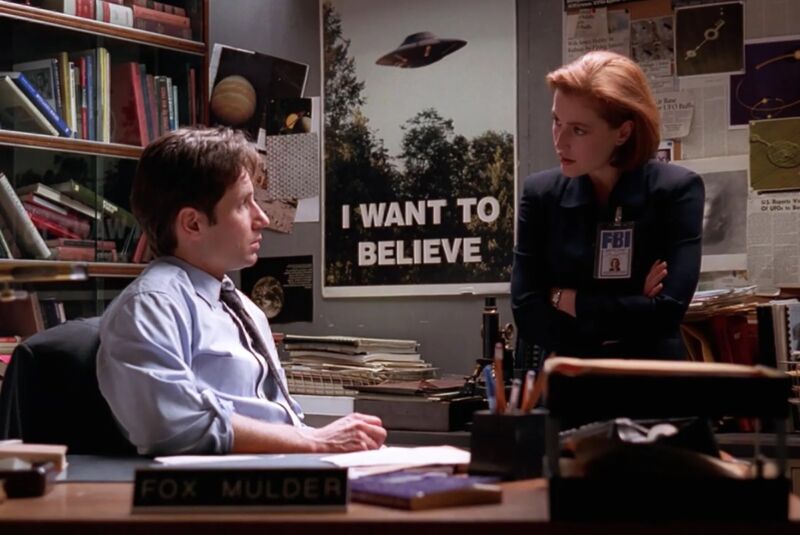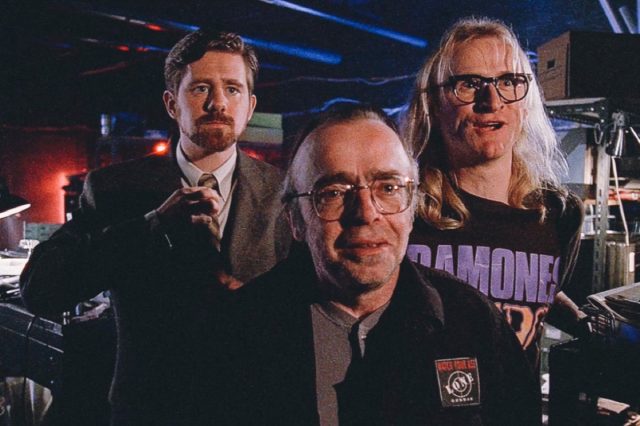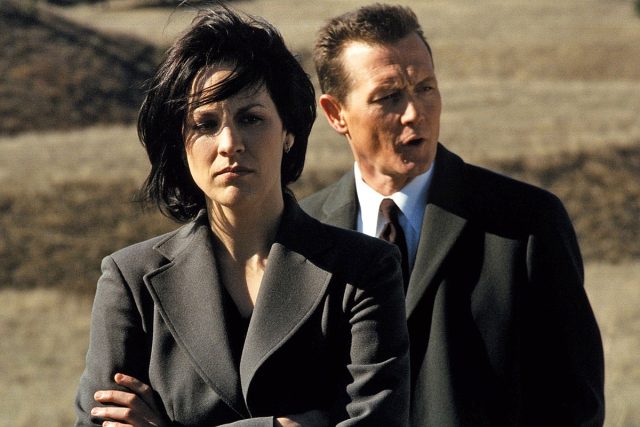
In September 1993, fictional FBI Special Agents Fox Mulder (David Duchovny) and Dana Scully (Gillian Anderson) made their broadcast TV debut on The X-Files and went on to investigate alien abductions and all manner of strange phenomena for nine full seasons and two feature films, followed by two additional limited-run seasons in 2016 and 2018. This hugely popular and influential series celebrates its 30th anniversary this month, giving us a prime opportunity to pay homage to our favorite episodes and characters.
(Spoilers for The X-Files below.)
Stream The X-Files
The X-Files was created by Chris Carter, who was a fan of the 1970s horror series Kolchak: The Night Stalker, featuring a wire service reporter (Darren McGavin) investigating mysterious crimes with a supernatural or science fiction element. Other cited influences included The Twilight Zone, Night Gallery, Twin Peaks (in which Duchovny played a transgender DEA agent), and Jonathan Demme's 1988 Oscar-winning film The Silence of the Lambs.
Carter liked the idea of a TV series featuring FBI agents investigating the paranormal. He deliberately made Mulder (nicknamed "Spooky") the true believer and Scully the science-based skeptic—a gender swap to counter broad cultural stereotypes. Carter described the pair as a dichotomy, representing his desire to believe in something versus an inability to believe—the age-old tension between skepticism and faith.
As the characters developed over subsequent seasons, we saw them internalize that tension, with Mulder sometimes getting discouraged and questioning his longing to believe and Scully being forced to confront how her science sometimes conflicted with her devout Catholic faith. They each had deep personal journeys as well; both lost family members, for instance, and Mulder's obsession with alien abductions was fueled by the disappearance of his sister Samantha when he was a kid. And while Carter was adamant early on that this would be a purely platonic relationship—à la Emma Peel and John Steed in The Avengers British TV series—that changed as the friendship between Mulder and Scully deepened, with increasingly romantic overtones. But the series never openly acknowledged the two having sex until season 11's "Plus One."

The X-Files quickly blossomed from a cult series into a bona fide pop culture phenomenon throughout its first seven seasons, racking up a lot of Emmy and Golden Globe awards. Scully is often credited with encouraging young women to pursue careers in medicine, science, or the FBI, a phenomenon dubbed the "Scully effect."
While it started out dealing with UFOs and alien abduction, Carter and his writing team realized early on that it would be difficult to sustain that momentum over multiple seasons. So there were essentially two kinds of episodes: those advancing the over-arching "mytharc" of the series canon—often featuring appearances by William B. Davis as the iconic Cigarette Smoking Man (CSM)—and standalone "Monster of the Week" (MOW) episodes unrelated to the series mythology. From horror to humor, shadowy conspiracies to arcane folklore, the series offered something for everyone, a key factor in its broad popular appeal.
“The Seasons That Shall Not Be Named”
For the first five seasons, The X-Files filmed in Vancouver, British Columbia, but it moved to Los Angeles starting with the sixth season so that Duchovny could be closer to his then-wife Tea Leoni. When Duchovny's contract expired after the seventh season, he effectively quit the series, though he returned occasionally as Mulder during S8 and S9—or, as I like to call them, "The Seasons That Shall Not Be Named."
This was unquestionably the low point of the series, especially with Anderson also winding down her involvement. Carter apparently convinced himself that he could simply find new leads—in this case, Robert Patrick as John Doggett and Annabeth Gish as Monica Reyes—and the show would run indefinitely. But there is simply no X-Files without Mulder and Scully. Add in the deaths of fan favorites the Lone Gunmen in "Jump the Shark" (S9), and no wonder ratings steeply declined.

The show's original run ended with that ninth season. But The X-Files lived on via DVD and (more recently) streaming platforms, and its hardcore fan base remained fiercely loyal. The 2008 film The X-Files: I Want to Believe (with a standalone MOW plot) received mixed reviews and didn't exactly light up the box office, but it grossed $68 million against its $30 million budget. That was enough to spark rumors of a possible third film; both Duchovny and Anderson expressed a willingness to co-star.
reader comments
210